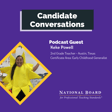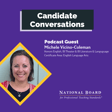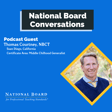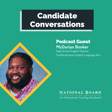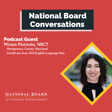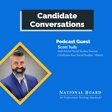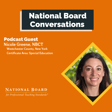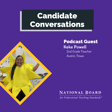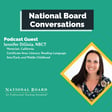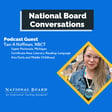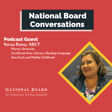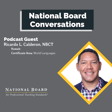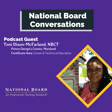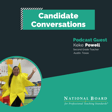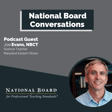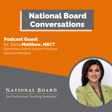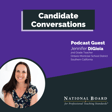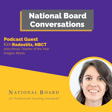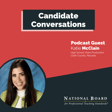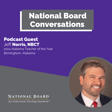
Dianna Minor, NBCT - Senior Manager of Standards at the National Board - Birmingham, Alabama
As Senior Manager of Standards, Dianna Minor leads the National Board work in overseeing the Standards Team’s critical functional areas, including project management, consultant management, event planning, and grant reporting. Additionally, Dianna coordinates the Certification Council, which is the arm of the Board of Directors with approval authority over the Standards and Assessment Department. She also works closely with the Assessment, Communications, Finance, and Candidate Experience Teams and with representatives from external stakeholder organizations. Minor is a renewed National Board Certified Teacher in Early Adolescence, English Language Arts. Previously, she has worked in Alabama as an English/language arts teacher, literacy and ESL interventionist, curriculum specialist, and a college adjunct in curriculum and instruction at the University of Alabama (Birmingham).
She is a graduate of the University of Alabama (Tuscaloosa). She holds a master’s degree in English/language arts education, an Administrative/Instructional Leadership certification, and an Educational Specialist (Ed.S) degree in English/language arts. Minor has served as a blogger for the National Council of Teachers of English (NCTE) and coached with the National Math & Science Initiative (NMSI), where she designed and developed content and eLearning experiences for educators nationwide. She has also served as an education consultant with Alabama’s A+ College Ready organization, where she developed curricula and trained educators in the latest-best practice teaching strategies. She has been active in the National Board communities, serving as a board member with Alabama’s NBCT Network, as National Board Core Connections Webinar facilitator, and as an educational consultant with the Alabama A & M University/University of Alabama at Huntsville Regional Inservice Center, where she facilitated professional development workshops and seminars asynchronously for educators pursuing National Board certification. In addition to being previously recognized as a district nominee for Alabama’s Teacher of the Year with Hoover City Schools, she was recognized as a 2020 Red Mountain Writing Fellow, an affiliate of the National Writing Project, and a 2021 TEDx Birmingham Education Fellow.
Twitter: @NBPTS
Instagram: @NBPTS
Facebook: The National Board for Professional Teaching Standards
